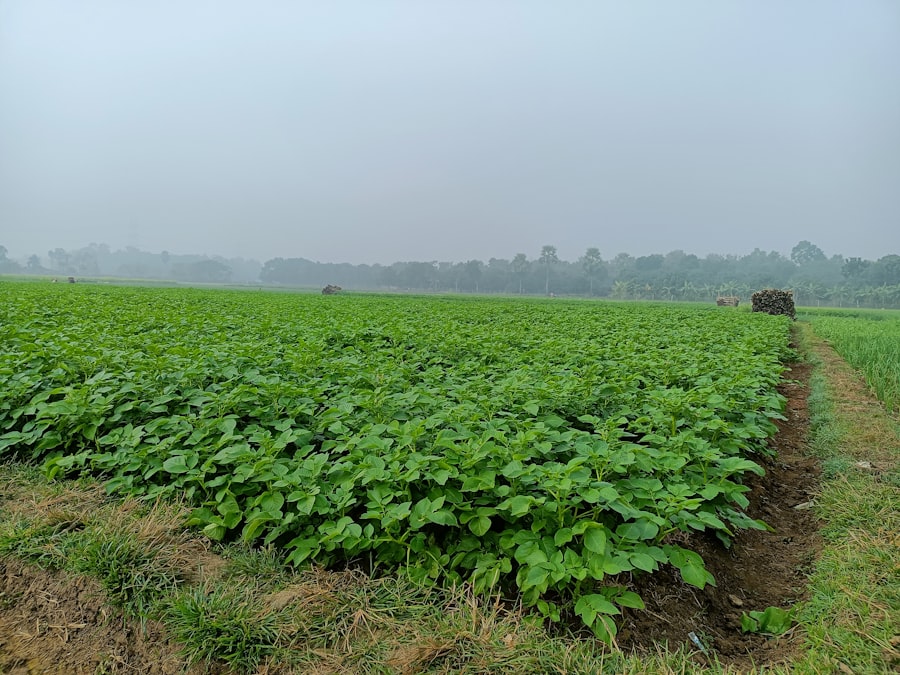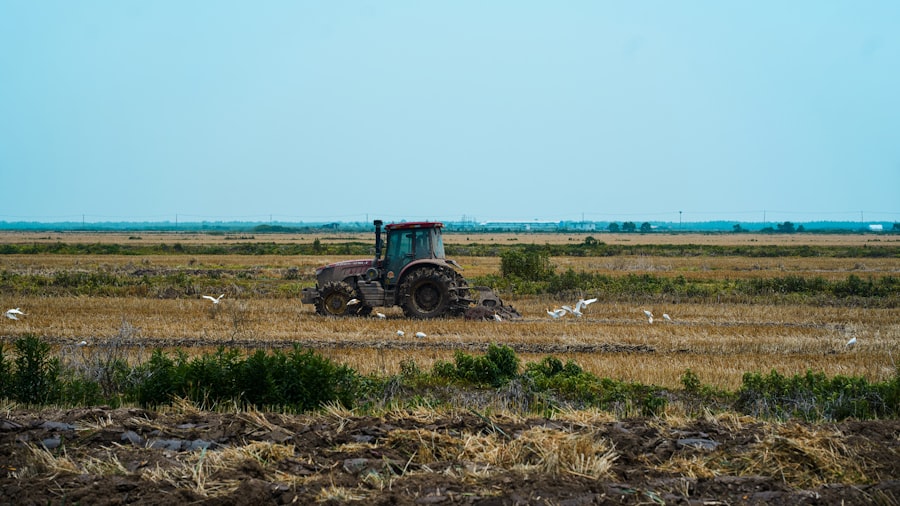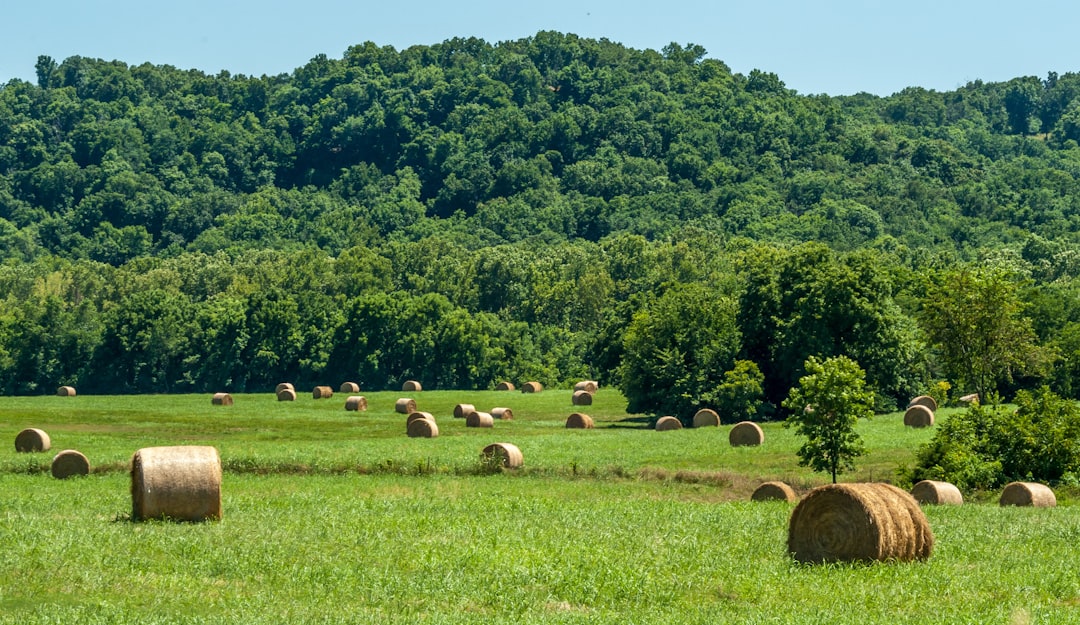BlackRock, a global investment management corporation, has emerged as a significant player in the agricultural sector, wielding considerable influence over farming practices and land ownership. With assets under management exceeding $9 trillion, BlackRock’s financial clout allows it to shape agricultural markets and policies on a global scale. The company’s foray into agriculture is not merely a matter of investment; it represents a strategic move to capitalize on the growing demand for food and sustainable farming practices.
As the world grapples with challenges such as climate change, population growth, and food security, BlackRock’s role in agriculture has become increasingly critical. The influence of BlackRock extends beyond mere financial transactions; it encompasses a broader vision of how agriculture can be transformed to meet the needs of a changing world. By investing in innovative agricultural technologies and sustainable practices, BlackRock aims to address pressing issues while simultaneously generating returns for its investors.
However, this influence raises questions about the implications of such concentrated power in the agricultural sector, particularly regarding small-scale farmers, land ownership, and food security.
Key Takeaways
- BlackRock’s significant influence on agriculture is a growing concern for various stakeholders.
- BlackRock has made substantial investments in agricultural companies and farmland, consolidating its power in the industry.
- The impact of BlackRock’s influence on agricultural practices has raised questions about sustainability and ethical considerations.
- BlackRock’s role in shaping agricultural policies has the potential to significantly impact global food systems and markets.
- The dominance of BlackRock in agricultural markets has implications for environmental sustainability, social equity, and food security.
BlackRock’s Investments in Agriculture
BlackRock’s investments in agriculture are diverse and multifaceted, reflecting the company’s commitment to sustainability and innovation. The firm has invested in various sectors within agriculture, including precision farming technologies, sustainable crop production, and agribusinesses that prioritize environmental stewardship. By channeling funds into these areas, BlackRock seeks to enhance productivity while minimizing the ecological footprint of farming practices.
This approach aligns with the growing trend among investors to prioritize environmental, social, and governance (ESG) criteria in their investment decisions. Moreover, BlackRock’s investment strategy often involves partnerships with agricultural startups and established companies that are pioneering new methods of farming. These collaborations not only provide financial backing but also facilitate the exchange of knowledge and expertise.
As a result, BlackRock is positioned at the forefront of agricultural innovation, influencing how food is produced and distributed globally. This investment strategy reflects a broader recognition of the need for sustainable practices in agriculture, as well as the potential for profitability in this evolving landscape.
Impacts of BlackRock’s Influence on Agricultural Practices

The influence of BlackRock on agricultural practices is profound and multifaceted. By investing in cutting-edge technologies and sustainable farming methods, BlackRock encourages a shift towards more efficient and environmentally friendly practices. For instance, precision agriculture—utilizing data analytics and technology to optimize crop yields—has gained traction due to investments from firms like BlackRock.
However, the impact of BlackRock’s influence is not universally positive. Critics argue that the company’s focus on profitability may lead to the prioritization of large-scale industrial farming over smallholder agriculture.
This shift can marginalize traditional farming practices and threaten the livelihoods of small-scale farmers who may struggle to compete with larger agribusinesses backed by substantial capital. As BlackRock continues to shape agricultural practices, it is essential to consider the balance between innovation and the preservation of diverse farming systems that have sustained communities for generations.
BlackRock’s Role in Shaping Agricultural Policies
| Metrics | Data |
|---|---|
| Investment in agricultural companies | 5 billion |
| Number of agricultural policy experts on staff | 20 |
| Advocacy efforts for sustainable agriculture | Active |
| Engagement with government policymakers | Regular |
BlackRock’s significant investments in agriculture grant it a unique position to influence agricultural policies at both national and international levels. As a major stakeholder in the agricultural sector, the firm can advocate for policies that align with its investment interests, promoting regulations that favor large-scale operations and technological advancements. This ability to shape policy discussions raises concerns about the potential for conflicts of interest, as decisions made by policymakers may disproportionately benefit large investors like BlackRock.
Furthermore, BlackRock’s involvement in agricultural policy extends beyond lobbying efforts; it also participates in dialogues surrounding food security, climate change, and sustainable development. By engaging with governments and international organizations, BlackRock can help shape frameworks that govern agricultural practices worldwide. However, this influence necessitates careful scrutiny to ensure that policies developed are equitable and inclusive, addressing the needs of all stakeholders in the agricultural ecosystem.
Implications of BlackRock’s Dominance in Agricultural Markets
The dominance of BlackRock in agricultural markets carries significant implications for the future of food production and distribution. As one of the largest asset managers globally, BlackRock’s investment decisions can sway market trends and dictate which agricultural practices gain traction. This concentration of power raises concerns about market monopolization and the potential for reduced competition among smaller players in the industry.
Moreover, BlackRock’s focus on profitability may lead to an emphasis on short-term gains rather than long-term sustainability. This approach could result in practices that prioritize immediate financial returns over ecological health or social equity. As such, the implications of BlackRock’s dominance extend beyond financial metrics; they encompass broader questions about the future of agriculture and its role in addressing global challenges such as climate change and food insecurity.
Environmental and Social Consequences of BlackRock’s Agricultural Investments

The environmental and social consequences of BlackRock’s agricultural investments are complex and multifaceted. On one hand, the firm’s commitment to sustainable practices can lead to positive outcomes such as reduced greenhouse gas emissions and improved soil health through innovative farming techniques. Investments in regenerative agriculture and sustainable land management can contribute to biodiversity conservation and ecosystem resilience.
On the other hand, there are concerns about the potential negative impacts of large-scale investments on local communities and ecosystems. The consolidation of land ownership by major investors like BlackRock can lead to displacement of smallholder farmers and disruption of traditional farming practices. Additionally, the focus on high-yield crops may exacerbate issues related to monoculture farming, which can deplete soil nutrients and increase vulnerability to pests and diseases.
As such, it is crucial for stakeholders to critically assess both the environmental benefits and social costs associated with BlackRock’s agricultural investments.
BlackRock’s Influence on Small-scale Farmers and Land Ownership
BlackRock’s growing presence in agriculture has significant implications for small-scale farmers and land ownership dynamics. As large institutional investors acquire vast tracts of farmland, smallholder farmers may find themselves increasingly marginalized in a landscape dominated by corporate interests. The competition for land drives up prices, making it challenging for small farmers to secure affordable plots for cultivation.
Moreover, the shift towards industrial agriculture often prioritizes large-scale operations that can leverage economies of scale over traditional farming methods that sustain local communities. This trend can lead to a loss of biodiversity as diverse cropping systems are replaced by monocultures favored by large agribusinesses. The impact on small-scale farmers extends beyond economic challenges; it also threatens cultural heritage tied to traditional farming practices that have been passed down through generations.
BlackRock’s Role in Food Security and Access to Resources
BlackRock’s influence on food security is a double-edged sword. On one hand, its investments in innovative agricultural technologies have the potential to enhance food production efficiency and improve access to resources for communities around the world. By supporting sustainable farming practices and investing in infrastructure that facilitates food distribution, BlackRock can contribute positively to global food security efforts.
Conversely, there are concerns that BlackRock’s focus on profitability may lead to inequitable access to resources. As large investors dominate agricultural markets, smaller producers may struggle to compete or gain access to essential inputs such as seeds, fertilizers, and water resources. This disparity can exacerbate existing inequalities within food systems, leaving vulnerable populations at risk of food insecurity.
Therefore, it is essential for stakeholders to advocate for policies that ensure equitable access to resources while balancing investment interests.
Regulatory Challenges and Oversight of BlackRock’s Agricultural Investments
The rapid expansion of BlackRock’s influence in agriculture raises important regulatory challenges that require careful consideration. As institutional investors increasingly enter agricultural markets, there is a pressing need for oversight mechanisms that ensure responsible investment practices. Current regulatory frameworks may not adequately address the complexities associated with large-scale agricultural investments or their potential impacts on local communities and ecosystems.
Regulators must grapple with questions surrounding land ownership transparency, environmental sustainability, and social equity as they seek to establish guidelines for institutional investors like BlackRock. Striking a balance between encouraging investment in agriculture while safeguarding public interests is crucial for fostering a resilient food system that benefits all stakeholders involved.
Responses and Resistance to BlackRock’s Influence in Agriculture
In response to BlackRock’s growing influence in agriculture, various stakeholders have begun organizing efforts aimed at resisting corporate dominance in food systems. Grassroots movements advocating for smallholder farmers’ rights have emerged as a counterbalance to large institutional investors’ power. These movements emphasize the importance of preserving traditional farming practices and ensuring equitable access to land and resources.
Additionally, consumer awareness campaigns have gained traction as individuals increasingly recognize the implications of corporate control over food production. By supporting local farmers and advocating for sustainable practices, consumers can play a vital role in challenging the status quo established by large investors like BlackRock. The resistance against corporate influence highlights the need for a more inclusive approach to agriculture that prioritizes community well-being alongside profitability.
Future Outlook and Considerations for BlackRock’s Role in Agriculture
As BlackRock continues to shape the future of agriculture through its investments and influence, it is essential for stakeholders to critically assess its role within this vital sector. The potential benefits of innovative agricultural practices must be weighed against the risks associated with concentrated power and market monopolization. Ensuring that small-scale farmers are not marginalized in favor of corporate interests will be crucial for fostering a resilient food system that serves diverse communities.
Looking ahead, collaboration among investors, policymakers, farmers, and consumers will be essential for navigating the complexities of modern agriculture. By prioritizing sustainability, equity, and community engagement, stakeholders can work together to create an agricultural landscape that meets both economic needs and social responsibilities. Ultimately, the future outlook for BlackRock’s role in agriculture will depend on its ability to balance profitability with a commitment to fostering inclusive practices that benefit all members of society.
BlackRock, as one of the largest asset management companies in the world, plays a significant role in shaping agricultural practices and policies through its investment strategies. An insightful article that delves into the broader implications of such financial powerhouses on agriculture can be found on How Wealth Grows. This article explores how investment decisions by firms like BlackRock can impact agricultural sustainability, food security, and rural economies. For a deeper understanding of these dynamics, you can read more about it
